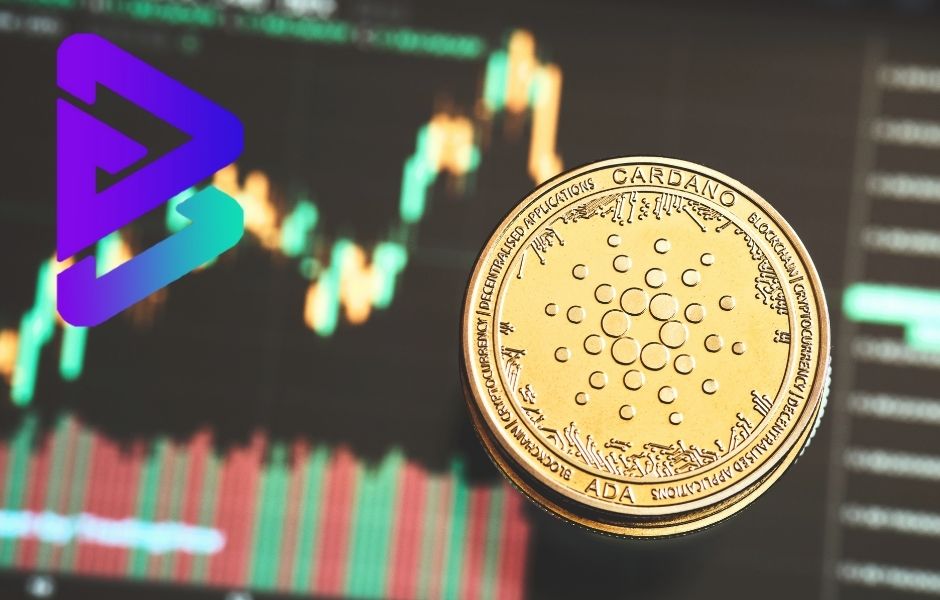How OpenAI Is Transforming The DeFi Market: Challenges And Concerns
The decentralized finance (DeFi) market has been one of the most disruptive forces in the financial world, offering decentralized and open-source alternatives to traditional banking and financial services. As this industry continues to evolve, the role of artificial intelligence (AI) is becoming increasingly significant. OpenAI, a leader in AI research and development, has had a profound impact on the DeFi market. In this article, we explore how OpenAI is transforming DeFi.
How OpenAI is transforming DeFi?
1. Smart Contracts and OpenAI:
One of the core aspects of the DeFi ecosystem is smart contracts, self-executing agreements with the terms directly written into code. OpenAI’s contributions to the field of AI, especially in the domain of natural language processing, have the potential to revolutionize how smart contracts are created and managed.
2. Natural Language Understanding for DeFi:
OpenAI’s language models, like GPT-3 and subsequent versions, are capable of understanding and generating human-like text. This capability can be harnessed in DeFi to simplify complex contract creation and interpretation. Users can input contract terms in natural language, and AI can convert these into smart contracts.
3. Risk Assessment and Prediction:
DeFi is inherently risky, with assets exposed to market volatility and smart contract vulnerabilities. OpenAI’s AI models can help in assessing and predicting risks by analyzing vast amounts of data in real-time. They can identify trends and potential vulnerabilities, providing early warnings to DeFi users and developers.
4. Improved User Interfaces:
DeFi platforms can benefit from AI-driven improvements in user interfaces. OpenAI’s conversational agents can provide intuitive customer support, helping users navigate DeFi services, answer their queries, and even assist in the recovery of lost assets.
5. Fraud Detection and Security:
DeFi platforms are often targeted by fraudsters and hackers. OpenAI’s AI models can enhance security by detecting suspicious activities, anomalies, and potential threats. They can analyze transaction patterns and flag unusual behavior.
6. Automating Financial Services:
OpenAI’s AI models can automate various financial services in DeFi. For example, chatbots and virtual assistants powered by AI can handle customer inquiries, execute transactions, and even provide investment advice.
7. Governance and Decision-Making:
DeFi projects often rely on decentralized autonomous organizations (DAOs) for decision-making. OpenAI’s AI models can assist in streamlining governance processes by analyzing and summarizing proposals and voting outcomes.
8. Improved Accessibility:
OpenAI’s focus on accessibility means that DeFi services can be made more user-friendly. This can include speech-to-text and text-to-speech capabilities, making DeFi more inclusive and easier to navigate.
9. Innovation in DeFi Products:
DeFi product development can benefit from AI-generated ideas and innovation. OpenAI models can assist in brainstorming new DeFi products and services, potentially leading to groundbreaking solutions.
10. Regulatory Compliance:
OpenAI’s AI models can assist DeFi projects in staying compliant with ever-evolving regulatory frameworks. They can help in tracking and analyzing regulatory changes, ensuring that DeFi platforms adapt as needed.
Also, read – How Can OpenAI Benefit from Blockchain: Is It A Good Marriage?
Challenges and Concerns:
The integration of artificial intelligence (AI), particularly OpenAI’s advanced language models, into the decentralized finance (DeFi) market presents significant opportunities but also raises a range of challenges and concerns that must be carefully addressed. Below are the key challenges and concerns associated with the use of OpenAI in DeFi:
OpenAI will be one of the biggest players in the modern world! 🔥
Disadvantage: centralisation. But there is a major player in DeFi…
Bittensor will do to AI what Bitcoin is doing to money: decentralisation! 🧠
I regularly buy $TAO, stacking this gem for the next bullrun! 🫡 pic.twitter.com/LuWM88Xx9M
— 𝐃𝐞𝐅𝐢.𝐏𝐨𝐩𝐞 (@AlphaCryptOmega) September 28, 2023
1. Security and Vulnerabilities:
- Data Security: Storing and processing sensitive financial and user data can make DeFi platforms a target for cyberattacks. AI models like GPT-3 require robust security measures to safeguard data integrity and user privacy.
- Model Vulnerabilities: AI models are not immune to vulnerabilities. There have been instances of adversarial attacks on language models, where slight manipulations can lead to incorrect responses or behavior. These vulnerabilities need to be addressed to prevent malicious exploitation.
2. Privacy and Data Protection:
- Data Privacy: DeFi platforms often require users to share personal and financial data. OpenAI’s AI models must adhere to strict data protection regulations to ensure user privacy and comply with legal requirements like GDPR.
3. Bias and Fairness:
- Bias in AI Models: AI models can inherit biases from the data they are trained on. This can result in biased decisions or outputs. In the financial sector, biases could lead to unfair lending practices or discrimination.
- Fairness and Transparency: Ensuring fairness and transparency in AI-generated decisions and actions is a challenge. It’s crucial to audit AI models and develop algorithms that consider fairness in their outputs.
4. Regulatory Compliance:
- Complex Regulatory Environment: The DeFi space is subject to evolving and complex regulatory frameworks worldwide. Implementing AI in financial services requires strict adherence to these regulations, which can vary significantly from one jurisdiction to another.
5. Accountability and Liability:
- Responsibility for AI Decisions: When AI models are used in DeFi, questions of accountability arise. If an AI model makes a faulty or biased financial decision, who is responsible for the consequences: the AI provider, the DeFi platform, or the user?
6. Lack of Human Oversight:
- Overreliance on AI: Depending too heavily on AI models without sufficient human oversight can lead to errors and unintended consequences. A balance must be struck to ensure the technology enhances human decision-making rather than replacing it entirely.
7. Ethical Use of AI:
- Ethical Considerations: DeFi platforms incorporating AI should adhere to ethical principles in the design and deployment of AI. Ethical issues like transparency, fairness, and user consent need to be addressed.
8. Scalability and Resource Intensiveness:
- Scalability Challenges: Deploying AI models at scale can be resource-intensive and costly. Ensuring that AI-driven DeFi platforms can scale to accommodate a growing user base is a technical challenge.
9. Education and User Understanding:
- User Understanding: Many users may not fully comprehend how AI operates in DeFi. Education and transparency initiatives are necessary to help users understand the technology and its potential implications.
10. Continuous Improvement: – Keeping AI Models Updated: AI models need continuous updates and improvements to stay relevant and secure. DeFi platforms must allocate resources for regular model updates and maintenance.
11. Legal and Compliance Risks: – Potential Legal Challenges: Implementing AI in DeFi may lead to legal challenges and disputes, especially when AI-driven decisions impact financial transactions, investments, or loans.
Addressing these challenges and concerns requires a collaborative effort between the DeFi industry, AI developers, and regulatory bodies. Establishing industry standards, guidelines, and best practices for AI in DeFi, as well as investing in research and development to enhance the security and fairness of AI models, are essential steps in ensuring the responsible and successful integration of AI in the DeFi ecosystem. Balancing innovation with risk management is paramount to harnessing the full potential of OpenAI’s technology in DeFi while maintaining user trust and system integrity.
https://twitter.com/i/status/1704894012442763301
Conclusion:
OpenAI’s impact on the DeFi market is already evident and will continue to grow as AI technology advances. DeFi platforms that leverage OpenAI’s capabilities can provide better user experiences, enhance security, and introduce innovative financial services. However, it is essential to navigate the integration of AI carefully, addressing concerns and ensuring that DeFi remains a space of transparency, accessibility, and decentralization. As the partnership between OpenAI and DeFi evolves, it will be fascinating to witness how AI further transforms this disruptive financial landscape.
Stay informed with daily updates from Blockchain Magazine on Google News. Click here to follow us and mark as favorite: [Blockchain Magazine on Google News].
Get Blockchain Insights In Inbox
Stay ahead of the curve with expert analysis and market updates.
latest from tech
Disclaimer: Any post shared by a third-party agency are sponsored and Blockchain Magazine has no views on any such posts. The views and opinions expressed in this post are those of the clients and do not necessarily reflect the official policy or position of Blockchain Magazine. The information provided in this post is for informational purposes only and should not be considered as financial, investment, or professional advice. Blockchain Magazine does not endorse or promote any specific products, services, or companies mentioned in this posts. Readers are encouraged to conduct their own research and consult with a qualified professional before making any financial decisions.

 Bitcoin
Bitcoin  Ethereum
Ethereum  Tether
Tether  XRP
XRP  Solana
Solana  Dogecoin
Dogecoin  USDC
USDC  Lido Staked Ether
Lido Staked Ether  Cardano
Cardano  TRON
TRON  Avalanche
Avalanche  Chainlink
Chainlink  Toncoin
Toncoin  Wrapped stETH
Wrapped stETH  Shiba Inu
Shiba Inu  Wrapped Bitcoin
Wrapped Bitcoin  Sui
Sui  Stellar
Stellar  Polkadot
Polkadot  Hedera
Hedera  WETH
WETH  Hyperliquid
Hyperliquid  LEO Token
LEO Token  Bitcoin Cash
Bitcoin Cash  Uniswap
Uniswap  Litecoin
Litecoin  Pepe
Pepe  Wrapped eETH
Wrapped eETH  NEAR Protocol
NEAR Protocol  Ethena USDe
Ethena USDe  USDS
USDS  Aptos
Aptos  Aave
Aave  Internet Computer
Internet Computer  Cronos
Cronos  POL (ex-MATIC)
POL (ex-MATIC)  Mantle
Mantle  Ethereum Classic
Ethereum Classic  Render
Render  WhiteBIT Coin
WhiteBIT Coin  Monero
Monero  Dai
Dai  MANTRA
MANTRA  Artificial Superintelligence Alliance
Artificial Superintelligence Alliance  Bittensor
Bittensor  Arbitrum
Arbitrum  Filecoin
Filecoin 



